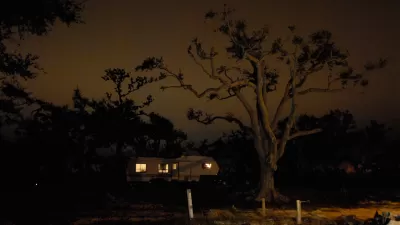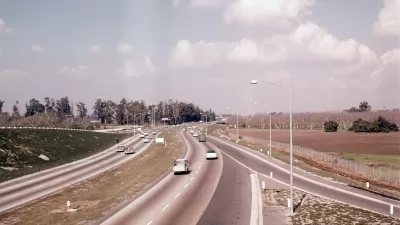Building smaller, more economical and sustainable homes is the talk of the building industry. But is it based on truth? Reporter Andrew Rice says it's anyone's guess with Americans will embrace the "spirit of contraint."
Rice looks at several attempts by builders and architects to create a model "New Economy" home, and documents the rough road they've had bringing the "smaller is better" mindset to the masses.
Rice interviews a who's who of planning minds for the article, including Andrés Duany, Marianne Cusato, Witold Rybczynski, Christopher Leinberger, and Sarah Susanka. Most are hopeful but somewhat jaded about their experiences trying to design smaller, smarter homes and getting them sold. Rybczynski talks about his experience developing the economical "Grow Home" in the early 90s, while Cusato is actually having some success today working with developer LeylandAlliance.
Duany, according to Rice, observed that "buyers will only accept smaller homes, he says, if their surroundings compensate them."
FULL STORY: The Elusive Small-House Utopia

Planetizen Federal Action Tracker
A weekly monitor of how Trump’s orders and actions are impacting planners and planning in America.

Map: Where Senate Republicans Want to Sell Your Public Lands
For public land advocates, the Senate Republicans’ proposal to sell millions of acres of public land in the West is “the biggest fight of their careers.”

Restaurant Patios Were a Pandemic Win — Why Were They so Hard to Keep?
Social distancing requirements and changes in travel patterns prompted cities to pilot new uses for street and sidewalk space. Then it got complicated.

Platform Pilsner: Vancouver Transit Agency Releases... a Beer?
TransLink will receive a portion of every sale of the four-pack.

Toronto Weighs Cheaper Transit, Parking Hikes for Major Events
Special event rates would take effect during large festivals, sports games and concerts to ‘discourage driving, manage congestion and free up space for transit.”

Berlin to Consider Car-Free Zone Larger Than Manhattan
The area bound by the 22-mile Ringbahn would still allow 12 uses of a private automobile per year per person, and several other exemptions.
Urban Design for Planners 1: Software Tools
This six-course series explores essential urban design concepts using open source software and equips planners with the tools they need to participate fully in the urban design process.
Planning for Universal Design
Learn the tools for implementing Universal Design in planning regulations.
Heyer Gruel & Associates PA
JM Goldson LLC
Custer County Colorado
City of Camden Redevelopment Agency
City of Astoria
Transportation Research & Education Center (TREC) at Portland State University
Camden Redevelopment Agency
City of Claremont
Municipality of Princeton (NJ)




























